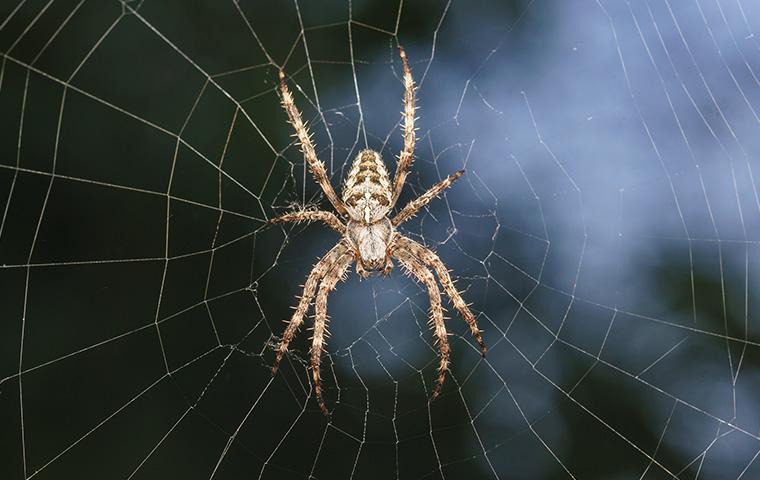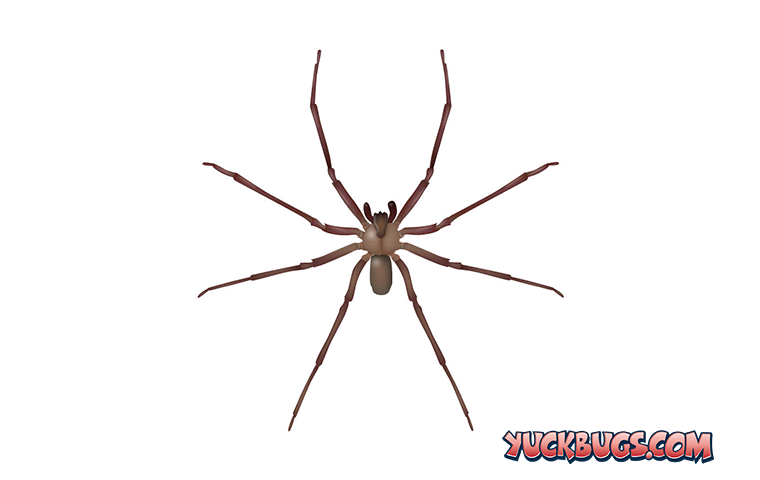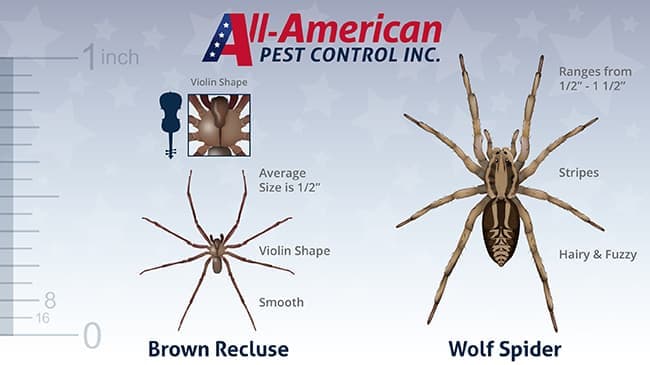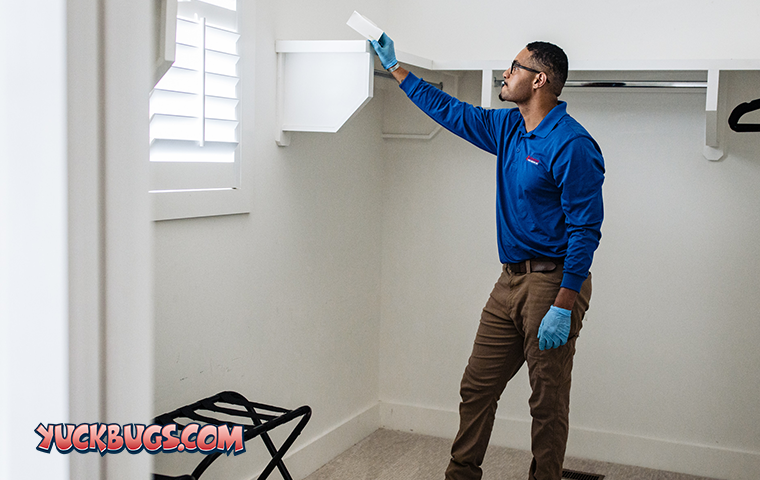Have you said, "I wish this moment would last forever"? If so, you likely made that statement when you felt happy, relaxed, and at peace; it was a time you didn't want to see stop. Conversely, have you had times that you wished would end quickly? Perhaps you endured a series of uncomfortable medical treatments or financial hardship, and your daily desire was to see those events in the past. There are some things, events, and moments we wish could last forever, but others we never want to experience again.
A spider infestation in your house is one of those times you want to see end quickly. No one wants to share a home with these eight-legged arachnids running along the floors, across your bed, or building webs in the upper corners of doorways.
You probably found this article because you have spiders in your Franklin house and want them gone as soon as possible. If spiders have infiltrated your home, you need spider control near you from All-American Pest Control. We are a locally-owned company that has served the Middle Tennessee area for over 60 years. Our dedication to strict hiring practices, relentless skill development, and reliability are why we have customers who have been with us for over 50 years. Like you, we live and work in the Middle Tennessee area, so we know the unique pest control challenges facing our part of the country.
We know you found this article looking for answers. Please keep reading to learn about common spider species in homes, the issues they cause, and what you can do to prevent future infestations in Franklin.

Spider Identification: How To Recognize Different Species
There are thousands of spider species worldwide, but the following are the spiders we encounter in Franklin homes:
- Black widow spiders
- Brown recluse spiders
- House spiders
- Jumping spiders
- Wolf spiders
- Orb spiders
- Zipper spiders
We understand that everyone thinks all spiders look and act alike, but there are significant differences that can help you identify the species infesting your Franklin home.
Before we get into specifics, let's examine the differences between spiders and insects and what characteristics all spiders have. Because there are stark differences between spiders and insects, they have an entirely different scientific classification: arachnids. For instance, insects have six legs, but spiders have eight legs. Insects have a three-part segmented body (head, thorax, and abdomen), but the head and thorax of a spider fuse to form one unit, the cephalothorax. Insects may have wings and stingers, but spiders have neither; instead, they have spinnerets. Also, insects usually have a pair of compound eyes, but spiders have rows of simple eyes. Now that we understand the components of these arachnids, we will examine common house spiders invading many Franklin homes.
Black widow spiders are so-named because females occasionally consume the males after mating. These spiders are identifiable by their jet black 1 1/2 to 1 3/8-inch body and two reddish-orange triangles on their abdomen that connect to form an "hourglass." Unlike American house spiders that build webs in the upper corners of doorways, black widow spiders create irregular webs near the ground in dimly lit areas of the garage, crawl space, or basement.
Brown recluse spiders have a 1/4 to 1/2-inch light to dark brown body with a dark fiddle or violin marking on the top of their cephalothorax. If you get close enough, you will notice six eyes arranged in three groups of two. While many spider species prefer warm, moist environments, brown recluses are content to live in seldom-worn clothing, boxes, and papers in dry, dark locations.
House spiders, also known as American house spiders, have a 3/16 to 5/16-inch yellowish-brown cephalothorax with an off-white abdomen with dark strips. You will find American house spiders underneath furniture and in the upper corners of basements, garages, and closets; they also dwell in crawl spaces.
Spiders cannot fly because they don't have wings, but the jumping spider can jump. These 1/8 to 3/4-inch arachnids have a black, tan, grey, or brown, compact body with short legs. Unlike many spider species that create webs to capture prey, jumping spiders use them as retreats because they prefer to jump onto their victims. Jumping spiders do not like to live inside homes; if they enter a house in pursuit of prey, they temporarily reside underneath furniture, in drape folds, and between books on bookshelves.
Wolf spiders are another species that doesn't create webs to capture prey but hunts them down. The females have a 3/8 to 1 3/8-inch body, while the males have a significantly smaller 1/4 to 3/4-inch dark brown body. Wolf spiders also have long, spiny legs and yellow or paler marks on their hairy, stout bodies. Like jumping spiders, wolf spiders do not stay inside homes long, but when inside, they live underneath furniture and move along baseboards.
If you grew up reading Charlotte's Web, you read about an orb weaver spider. Round, large, circular webs are the distinguishing feature. These spiders are prevalent in areas with good airflow and many insects like gardens, fences, tall grasses, and tree branches.
Zipper spiders are a part of the orb weaver family. If there were a beauty contest for spiders, zipper spiders would be a strong contender with yellow and black patterns on their 3/4 to 1 1 1/8 (females) or 1/4 to 3/8 (males) bodies and bright cephalothorax. In addition to their striking colors, a third claw on each of their eight legs is a distinguishing feature. Zipper spiders are active in late summer; like most orb weavers, they live outdoors.
All-American Pest Control provides pest control for all types of spiders in the Franklin area.
Issues Caused By Spiders In The House: Webs, Bites, And Inconvenience
All spiders can be a nuisance for homeowners when they enter the house. You have likely had the experience of walking into a house or orb weaver's web when entering a room or working in the garden. Or, you've had to contend with the sticky traps created by brown recluses or black widows when moving items around the garage floor. However, beyond the nuisance of spider webs, there are health concerns with a couple of spider species.
Black widow and brown recluse are venomous spiders that infest homes in the Middle Tennessee area. Although neither spider is aggressive and will try to avoid human contact, they will bite if threatened by a hand poking into their webs. A black widow wound is not deadly but will cause fever, increased blood pressure, nausea, and sweating. Pain is almost immediate when a black widow bites in self-defense, will increase over the next one to three hours, and persist for about three days.
Although they have smaller bodies than black widow spiders, a bite from a brown recluse spider packs a more powerful punch. Unlike a black widow, you may not feel pain immediately but will feel it in the next six to eight hours. The venom from a brown recluse will also trigger fever, restlessness, and sleeping difficulties and can cause tissue death (necrosis). Unless treated, the toxin can eat to the bone and create a nasty ulcer, resulting in permanent scarring. If you suspect a brown recluse or black widow spider has bitten you, seek immediate medical attention and take the spider with you, if possible.
Other spiders on our list may bite when threatened. Generally, the wounds produce a temporary stinging sensation and some swelling at the bite location but do not require additional medical attention beyond keeping the area clean. All-American Pest Control protects you from the nuisance and dangers of these spiders in Tennessee.
Preventing Spiders In Your Home: Tips And Tricks
Spiders are everywhere outside the walls of your home, and it is impossible to eliminate all spiders on a property, nor do you want them to be gone because they are a necessary part of our ecosystem. However, you can do the following to keep them out of your Franklin house:
- Repair holes in window and door screens
- Deweb the house
- Install door sweeps under exterior doors
- Use bug or LED lights in exterior fixtures
- Remove insect attractants around the yard
- Seal cracks in the foundation and along the roofline
- Prune tree branches and shrubs away from the house
The best way to get rid of spiders is to partner with All-American Pest Control. We can provide additional tips when a technician arrives at your home for spider control.
Professional Pest Control: A Great Spider Control Solution
When you see spiders in your Franklin home, there is a good chance they have nests underneath furniture, wall voids, dimly lit areas, and bushes surrounding the house. We will dispatch a trained technician to inspect your home to identify attractants, entry points, hot spots, and the spider species infesting your location.
Our initial service involves treating the interior to eradicate adult spiders and their offspring. Next, we treat the exterior service by removing webs up to 20 feet on your house, and we create a barrier around your home to prevent additional spiders from entering. We use long-lasting granules to add extra protection around the house to prevent spiders from invading in the winter. Contact All-American Pest Control for Franklin spider control to learn about our pest control programs and schedule a service.
We're Ready To Help
Call Our Office or Complete the Form To Get Your Customized Quote
 1277 Reviews
1277 Reviews







